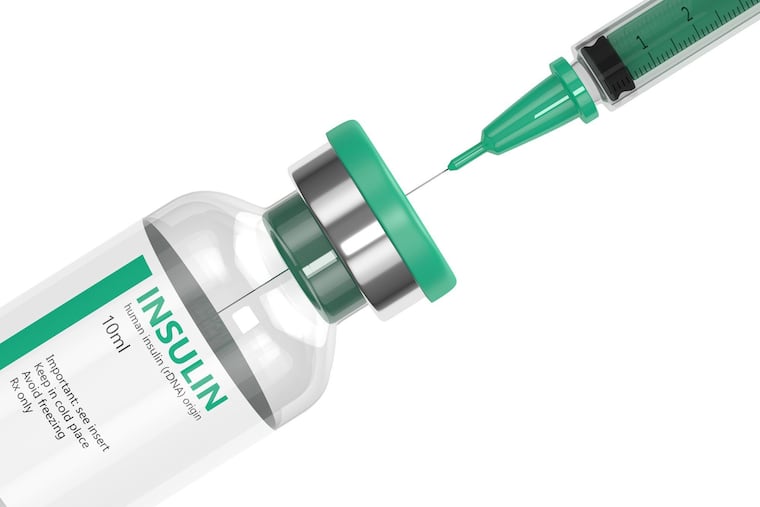Quarter of U.S. patients with Type 1 diabetes ration insulin, study finds
Internationally, 18 percent of people with Type 1 diabetes reported rationing their medication at least once in the past year.

Two vials of insulin for $250 — with insurance coverage — seemed kind of steep to Joseph Strank. But he paid it anyway because he needs the medication to manage his Type 1 diabetes, which keeps his body from producing its own insulin.
But last year, when the cost increased to $250 for just one vial, the 60-year-old Philadelphia resident knew he had a problem.
“I was limiting my carbs so I wouldn’t have to give myself as much insulin,” said Strank, who typically uses one or two vials a month.
About a quarter of people with Type 1 diabetes ration their insulin because of cost, according to a study published last week by T1International, which advocates for insulin access and affordability. Internationally, 18 percent of people with Type 1 diabetes reported rationing their medication at least once in the past year, exposing themselves to potentially serious complications.
“The prices of insulin are astronomical, and even patients with good insurance coverage are getting squeezed.… They’re having to make choices. I see this every day in my practice,” said Mark Schutta, the director of the Penn Rodebaugh Diabetes Center at Penn Medicine and Strank’s doctor.
The T1International report reinforces findings in previous, smaller studies, including a letter by Yale researchers published in the Journal of the American Medical Association in January that reported one in four diabetes patients at an urban health center rationed insulin.
T1International used an online survey of 1,478 people in 90 countries, with 44 percent of participants from the United States, to learn more about how people cope with the cost of insulin.
In addition to rationing their medication, the survey found that patients commonly ration the testing supplies they use to manage diabetes. About 34 percent of respondents in all countries — 39 percent in the U.S. — said they stretched their testing supplies in the past year.
Rationing insulin is dangerous because it puts people with diabetes at higher risk of medical complications, including diabetic ketoacidosis, a severe complication that can lead to a coma or death if untreated, Schutta said.
“The thing that worries me is that we know definitively that glycemic control leads to reduced risk for complications,” he said.
Patient outrage and physician concern over high prices have sparked a national debate about the cost of prescription drugs, including insulin.
The Trump administration said it wants drug makers to include prices in television ads and the issue is one that has received bipartisan attention in Congress.
In the meantime, patients are finding their own ways to cope. An increasingly popular option is to buy medications from international pharmacies, where prices are often much lower. Sometimes, international pharmacies have generic options not available in the U.S.
In a 2016 survey of 1,202 adults by the Kaiser Family Foundation, 8 percent of people said they or someone in their household had traveled to another country for medications or used an international online pharmacy.
The U.S. Food and Drug Administration does not enforce rules against importing prescription medication among individuals buying small amounts for personal use.
Earlier this year, Strank joined the trend. Through a pharmacy in Canada, he’s able to get his insulin for $50 a vial — a price he can afford.